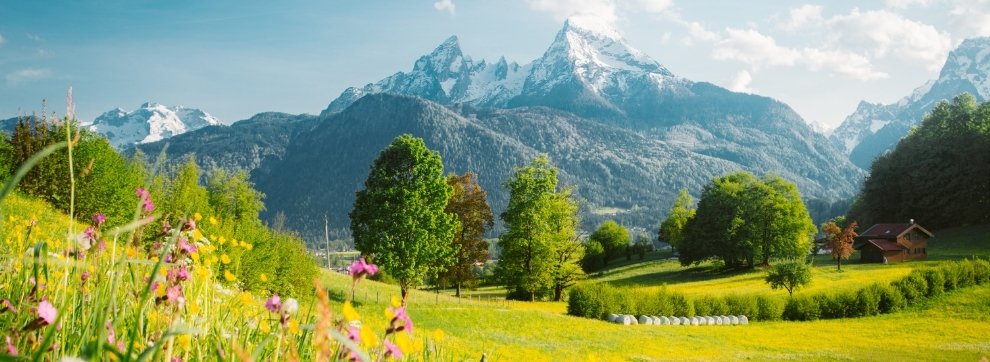By Nada Shawish
How much of your food goes to waste? In my house, we don’t mean to, but I know that we’ve wasted food, and we’ve wasted too much.
According to The National Resource Defense Council, 40 percent of food in the United States goes uneaten—that’s nearly $165 billion each year in food that ends up thrown out and forgotten about.
I’ve seen it myself. At potlucks, parties, dinners, summer barbeques, and holidays, alhamdulillah (all praise be to God) there’s always a lot of leftovers. But if they aren’t taken home by guests or eaten within the next couple days, they get thrown away. This is on top of our everyday habits of cooking extra, ordering too much, taking seconds or thirds that we can’t finish, and letting food just go bad.
Sadly, this is especially true during the holy month of Ramadan, a time when Muslims fast in part to feel sympathy with the hungry. Ironic isn’t it?
Like Christmas-time, the Ramadan spirit is getting swallowed by all that we buy and don’t use – the food we’re devouring with our eyes.
During a time when one in six Americans doesn’t have enough nutritious food to eat, we have to ask ourselves, why?
Globally, statistics on hunger are devastating. Overwhelming numbers of people are starving or eating harmful foods – it’s a problem that can seem hopeless. And yet, the United Nations has called the amount of food wasted globally “absurd.”
There are enough food resources in the world. It’s our processing, handling, and most of all wasting of it that makes it seem scarce and expensive. While in developing countries food waste seems to happen before food reaches consumers, in the United States, most food waste happens in homes and restaurants.
It’s a very personal issue, one that puts to question our moral character if we choose to ignore it. Reducing our waste by only 15% could help feed more than 25 million hungry people in the United States, according to the National Institute of Diabetes and Digestive and Kidney Diseases. Plus, research at CleanMetrics has shown we’re even increasing greenhouse gas emissions by sending so much uneaten food to landfills. Other studies prove that by wasting food, we’re also using up the world’s water supply. Nearly, 80 percent of fresh water in the United States is used just to get food to our tables (NRDC).
I’m thankful for the food we have… I’ve seen what destitute poverty looks like through the career path I’ve chosen, and my middle-class family works hard to afford these things. I know that food is precious, but it isn’t something that I really have to think about on a daily basis. I know I can have something to eat when I’m hungry.
But there is such arrogance in that thinking isn’t there? Unintentionally, I don’t think about not being able to buy food.
It seems like I can always buy fresh, organic eggs that will cost me $5.00 a dozen at the local farmer’s market or organic soy milk because regular milk just doesn’t sit well with me, fresh cuts of halal beef, cleaned wild-caught fish, packages of ready-to-cook chicken breast- It’s expensive, but with a little picking and choosing and moving around funds, I can buy what I need to eat a healthy and delicious meal. I don’t think there’s shame in this, but it’s time for more self-awareness. We need to be more careful about what we let go to waste.
Especially during Ramadan.
In Ramadan, we seem to get carried away.
Ramadan has become this extravagant buying and cooking fest that everyone looks forward to because people get together each night to a tableful of choices of fresh, hot food. Lots of it.
This is true around the world. On a trip to Lebanon and Jordan to document Islamic Relief projects last Ramadan, my colleague and I found tables of endless plates in front of us every evening, a show of food choices that we could not possibly eat. After documenting the horrific poverty in nearby houses, and then coming to break our fasts at tables where food was being thrown away by the plateful, we found ourselves not very hungry most of the time. The mantra can become: Just don’t think about it, and eat.
But that’s the problem. We need to think about it. We need to make a conscious effort.
Part of what it means to be a good person in Islam is always making efforts to improve – small efforts every day.
The idea that we could prepare a good, hearty, modest meal with the nutrition we need, without overdoing it at the Ramadan table, is hard to digest when you’re catering to guests. It’s a long-standing cultural norm that is supposed to be a gesture of generosity, but that easily gets mutated into something less flattering.
But what we forget to realize, or maybe choose not to realize, is that reducing waste starts at home: In the United States, most food waste happens in homes and restaurants, according to the World Resources Institute.
This Ramadan, let’s eat just enough to be healthy. And let’s remember that being allowed to do so is a gift from God every day.
I pledge to be more careful this Ramadan. I’ll measure — I know how much I need and will use what I need. And as a guest, I’ll do the same. This way, less food will end up in the trashcan because it’s gotten old or because I just want something new, or because I’m trying to blow away my neighbors in cooking.
If enough of us take small steps like these, we can help make better food more available for everyone, and most of all reduce waste – waste that no one can really afford. As American consumers, we can do better, and have done better. The average American consumer wastes 10 times as much food as someone in Southeast Asia according to the UN Food and Agriculture Organization – that’s 50 percent more than we wasted in the 1970s.
So, this is my pledge for this Ramadan – I can at least increase my awareness and try to reduce waste.
Maybe we can get back to the things Ramadan is really about:
Glorifying God (exalted is He) the way He asked us to.
Giving from our own selves in all aspects without waste.
Experiencing what it’s like to feel hunger.
And appreciating the food we have while we have it.
Source: Brought to you by Suhaibwebb. Read more here.















